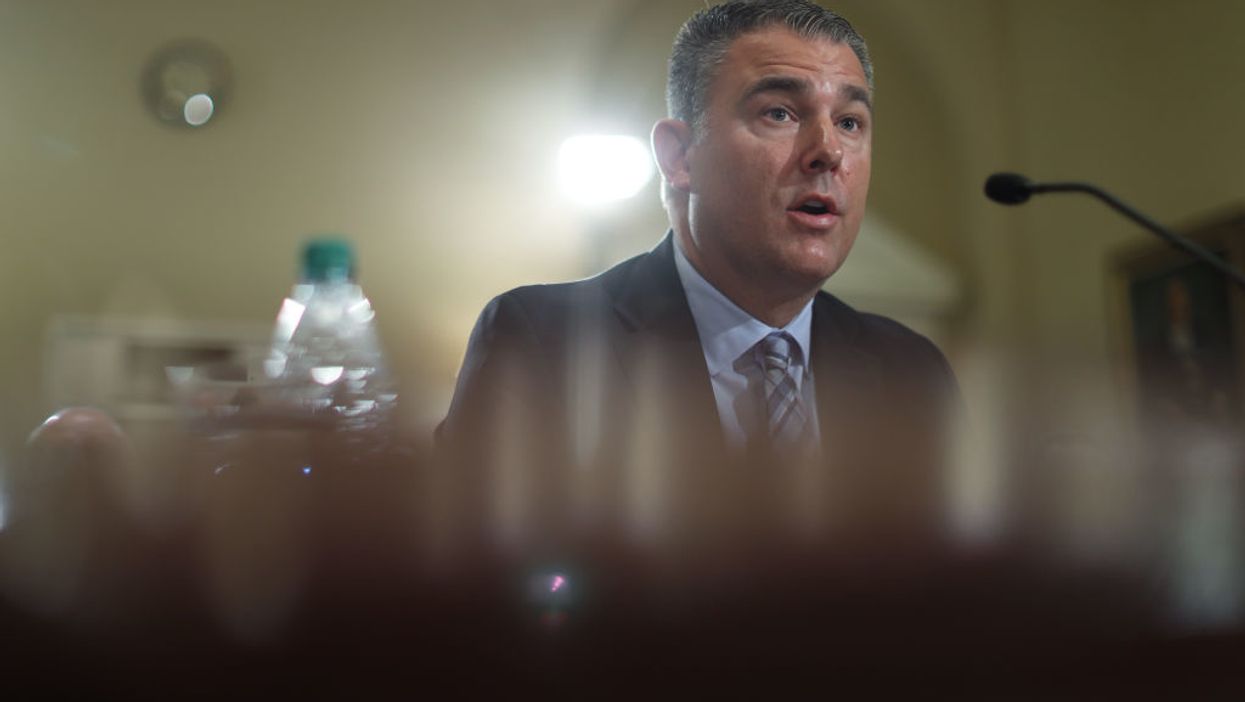The Election Assistance Commission has admonished the nation's largest manufacturer of voting equipment for making misleading claims in some of its marketing materials.
The federal agency's upbraiding of Election Systems & Software was prompted by a complaint from two good-government groups, Free Speech for People and the National Election Defense Coalition, which discovered that ES&S was claiming that one of its voting machines with a modem option was EAC certified.
The EAC action is significant because the agency has been criticized for not aggressively monitoring the voting machine industry, which is one of its principal assignments. The small but primary agency overseeing how states conduct voting has struggled through a leadership change, turnover and budget cutbacks in the runup to this November's election but has been starting to rebuild itself in recent months.
The agency sets voluntary standards for voting systems, and most states adopt by law or regulation some aspect of the federal testing and certification program.
Security is one of key elements of the standards, particularly in the wake of hacking attempts by Russian operatives during the 2016 presidential election. Any part of a voting system that could connect to the internet is considered to create an opportunity for a virtual break-in.
In their complaint field in January, the advocacy groups pointed out that marketing materials sent out for the ES&S DS200 voting system suggested that a version that included a modem had been federally certified. Only the version without a modem is certified, because modems are seen as opening up equipment to easy interference.
The company told the government it never intended to imply the modem-version was certified, promising to remove all references to the optional use of modems from its marketing materials.
The EAC's head of voting machine certification, Jerome Lovato, nonetheless concluded that promoting the modem violated the agency's testing and certification rules. He gave the company 15 days to come up with a plan to remove the sales brochures from circulation and notify customers they were inaccurate.
And he said ES&S should take the same steps with materials that exaggerated in describing vote tabulation systems as being submitted to rigorous and extensive independent testing campaigns as part of the federal certification program.
The company rejected that finding and said it wouldn't take corrective action, asserting its tabulation systems have all been approved by the EAC, even those for use in states that don't use the federal standards.
Lovato told the company it could have seen its equipment decertified and its manufacturer registration suspended. Instead, the federal regulator concluded the letter this way: "You are a valued stakeholder and I appreciate your proactive and prompt response."
Officials at Free Speech for People said that ES&S has sold voting machines with wireless modems to states around the country — including the presidential battlegrounds of Florida, Michigan and Wisconsin.
The company's website points out that using the modems to transmit unofficial results is legal in some states and that the company employs "numerous security safeguards to protect the transfer" of the information.
Susan Greenhalgh of Free Speech for People rejected the company's claim that it was not intending to be deceptive. "ES&S has a pattern of deception," she said. "We're very pleased the EAC took action to rebuke ES&S for its false claims, but this is just a part of a larger pattern of duplicity from the voting system vendors that operate with little to no oversight and without meaningful regulation."




















